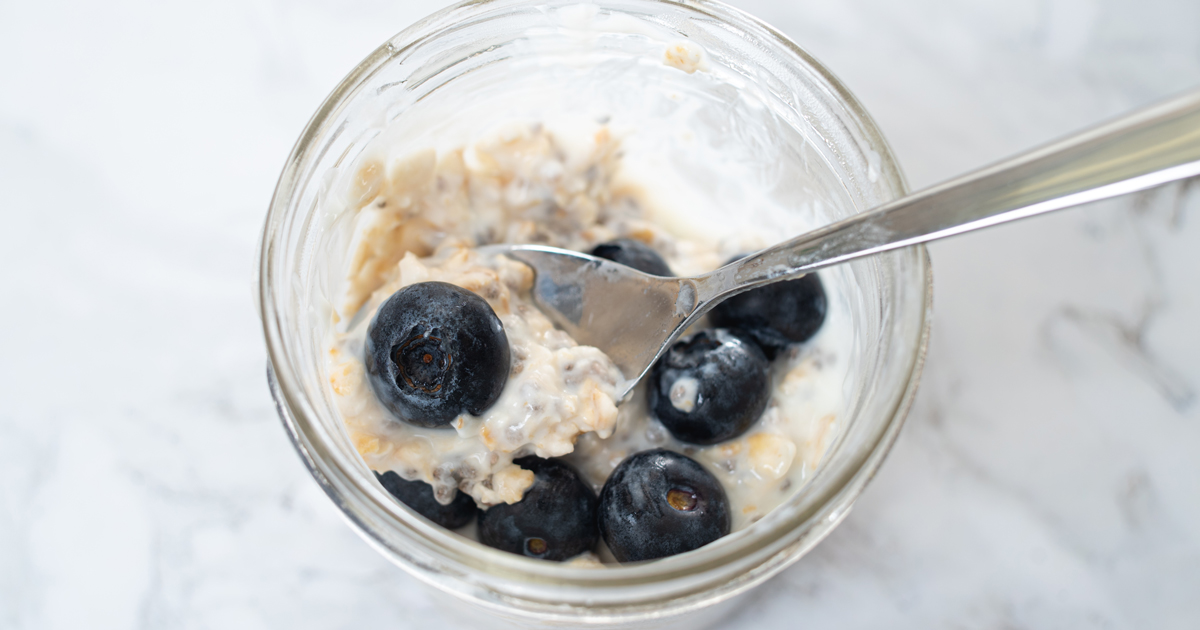Diet and gastrointestinal disease: 8 best foods for gut health

The digestive system is a full-body process. Even our brain gets involved with the gut and microbes, affecting everything from mood and metabolism to our immune systems. There is still much to learn about how diet and the gut affect our whole body, but we do know there are significant connections between chronic disease, diet and gut health.
How the digestive system works
Our digestive tract is an intricate system with many working parts and starts with the moment food touches our mouth. Each part of the system helps break down food and liquid into smaller pieces until our body can absorb and move the nutrients to where they are needed.
Particular enzymes in our salvia kick off the digestive process. As food travels from the esophagus to our stomach, enzymes work with contracting muscles, mixing food with the enzymes. Although everyone is a little different, it typically takes around four to five hours for food to pass through the first half of the digestive system.
The small intestine is where our gut microbes start to do their job by breaking down fats, carbs and proteins. It also supports our immune health and absorbs vitamins and minerals. Bacteria in the large intestine (colon) complete the breakdown process and helps to keep our fluids in balance.
The digestive system is also affected by hormones, nerves, and other organs like the pancreas, liver and gallbladder.
Diet and gastrointestinal disease

"Like other types of chronic disease, I strongly believe an individual's diet affects the management, and in certain situations, even the progression of a chronic GI disease," says Marta Jonson, MMN, RDN, LMNT, Nebraska Medicine nutrition therapist. "Food is fuel, and if we are not getting the nutrients we need, our bodies will have a difficult time-fighting disease or helping us maintain the quality of life we want."
Like other chronic diseases, GI patients often experience chronic inflammation, potentially leading to additional health problems. The way we eat may help prevent and keep chronic inflammation at bay. Research reveals connections between diet and inflammation:
- Foods high in saturated fats and transfat may increase inflammation
- Healthy fats (like omega-3 and monounsaturated fat) may help decrease inflammation
- Phytonutrients in fruits and vegetables may help protect against inflammation
Lifestyle also plays a role in managing GI disease:
- Stress management
- Regular exercise and movement
- Limit exposure to environmental toxins, smoking, excess alcohol
- Quality sleep
Diet becomes crucial in preventing disease progression for those with certain GI-related autoimmune disorders. Those with celiac disease and inflammatory bowel disease are highly impacted by what they eat.
Can GI disease be prevented or even cured by a healthy diet?
Research is limited but rapidly growing. "The Frederick F. Paustian Inflammatory Bowel Disease Center is partnering with Nebraska Food for Health to further microbiome research," says Jonson. "As we do more research, we hope to use this knowledge to prevent, cure and help manage GI diseases more precisely with nutrition."
A healthy diet may look different for everyone. "Nutrition and health are much more complex than just looking at the macronutrients in someone's diet," adds Jonson. “I enjoy talking to patients about gut health because it digs deeper than what many people used to consider to be nutrition education."
Eight best foods for gut health
Foods that promote gut health contain prebiotic fibers and potential anti-inflammatory properties. Ideally, half your plate should be plants, a quarter filled with healthy carbohydrates, and the last quarter a serving of protein. The more color on your plate, the better.
Digestion tips as you add gut-healthy foods to your diet:
- When increasing fiber in your diet, your body needs time to adjust. It's essential to add fiber-rich foods slowly and stay hydrated to reduce discomfort. Mild bloating after eating high-fiber foods is natural and a sign of healthy digestion
- You don't need to shop exclusively organic or purchase only fresh produce to add variety and nutrients to your diet. No-salt canned versions and frozen are just as nourishing and can be less expensive. Watch for in-season produce, which can often be on sale
- Use mindful eating techniques to help nurture the brain and gut connection:
- Be fully present at meal times (set aside digital devices)
- Take three to six deep breaths before sitting down to eat to calm the mind and send blood flow to the digestive tract
- Take your time and chew slowly to aid digestion
Add these gut-healthy foods to your diet:
- Flax seeds are rich in omega-3, fiber, and antioxidants. Try adding them to oats and smoothies. The body may better absorb the ground version.
- Berries like cherries, blackberries, raspberries and blueberries are excellent fiber sources containing phytonutrients (antioxidants) that fight inflammation.
- Turmeric is an antioxidant, fights inflammation, and promotes immunity. Rich in beta carotene and vitamin C, buy the root or high-quality spice version to use in meals, on chicken, veggies or rice.
- Ginger root reduces inflammation and can help calm nausea. Make it as a tea, or try adding it to glazes, veggies, smoothies or salad dressing.
- Beans aid digestion, are high in fiber, and slow digestion to help you feel full. Soak them overnight to reduce the chance of gas.
- Avocados are full of healthy fats and fiber called pectin, which benefits gut health.
- Oats are full of soluble fiber that may help lower cholesterol, slow digestion to help you feel full longer, and aid in blood sugar control. Add oats to berries, nuts and seeds to add protein and antioxidants.
- Pumpkin is full of fiber and vitamin K, supports bone health, and promotes a healthy gut. Tip: Canned pumpkin typically has more fiber.
Foods to reduce or avoid if you're prone to GI problems
While all food is nourishing, some of the most common foods to avoid are artificial sweeteners, sugar alcohols, and a regular habit of eating saturated fats or transfats.
- Beware of "sugar-free" or "calorie-free" foods. Often this means artificial sweeteners have replaced sugar. While helpful for those with diabetes, even one or two servings a day can cause bloating, gas and diarrhea
- Saturated fats are inflammatory to the gut and in almost any product on the shelf, including beef, pork and ham. A better choice is lean proteins or plant proteins like tofu, edamame, quinoa, beans and hummus
- Although dairy is an excellent source of protein, those with lactose intolerance are encouraged to try plant-based milk or milk substitutes
"Remember, overall health involves a combination of things, including emotional, physical and mental health," says Jonson. "A healthy diet is not all or nothing. It's about being intentional one day at a time, fueling your body with whole foods and knowing that there is a healthy balance."





